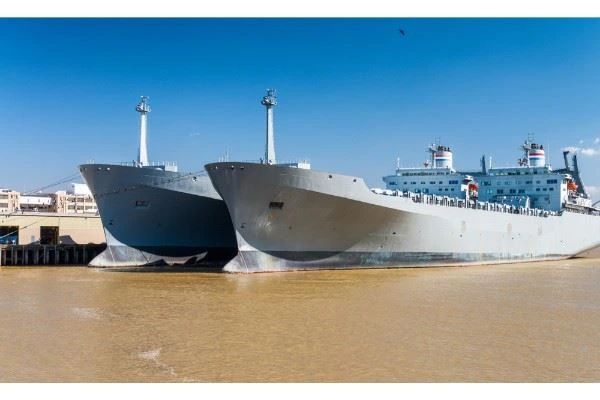Rollin’…Rollin’ On The River…And You Get Injured. Now What?

It has been said that Louisiana leads the United States in maritime employment. Indeed, the Mississippi River, Lake Pontchartrain, and the entire Mississippi River Delta are some of the most heavily trafficked waterways in the entire country.
Louisiana’s waterways are filled with vessels of all kinds. Everything from barges and oil tankers to fishing boats and personal watercraft, to riverboat casinos. All this activity means that boat and vessel accidents are not uncommon.
Added to that, by its nature working on or around boats is dangerous work.
So, what happens when a riverboat (or “vessel”) worker is injured?
Well, just as working on a vessel has its own dangers and requirements, maritime law has its own particular rules.
Maritime Accidents and Injuries.
There are a number of laws that provide injured maritime workers with the ability to file a claim for compensation, such as the:
- Jones Act
- Longshore and Harbor Workers’ Compensation Act (LHWCA)
- Outer Continental Shelf Lands Act (OCSLA) and
- Death on the High Seas Act (DOHSA).
The type of claim an injured maritime worker files depends on his job and where the injury (or death) occurred.
The Jones Act.
The Merchant Marine Act of 1920, commonly referred to as the “Jones Act,” is a federal statute that applies to seamen injured on ships, offshore oil rigs, barges, tug boats, tankers, riverboats, shrimp boats, trawlers, fishing boats, ferries, water taxis, and all other vessels on the ocean or intra-coastal rivers and canals. It also applies to commercial divers and other underwater personnel.
This law allows injured seamen to sue their employer for the damages he or she has suffered as a result of a work-related injury.
While the law allows “any seaman” injured in the course of his employment to recover damages against his employer, the key to recovery under the Jones Act and the general maritime law is the term “seaman.” Unfortunately, the law does not define the word “seaman.”
However, generally speaking, any worker who spends more than 30 percent of his or her time on a vessel in navigation qualifies as a seaman under the Jones Act. Those who don’t qualify as “seamen” under the Jones Act, might be covered under the Longshore and Harbor Workers’ Act.
Need to Know More About Maritime Law and Your Situation?
If you have been injured or lost a loved one in a maritime accident, call us. have We are experienced maritime attorneys and we offer FREE consultations. We have offices in Baton Rouge, and we serve Baker, Denham, Gonzales, Port Allen, Prairieville, New Orleans, and Zachary. Call 225-200-0000 ToDay to schedule your free consultation or contact us here.
Contact Us
Day Law Group Office Location
Contact Us
Choose Day Law Group
Fields marked with an * are required
"*" indicates required fields



